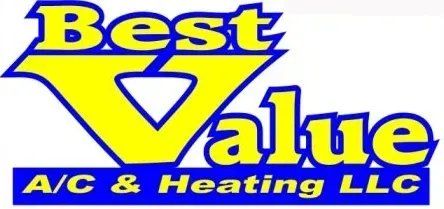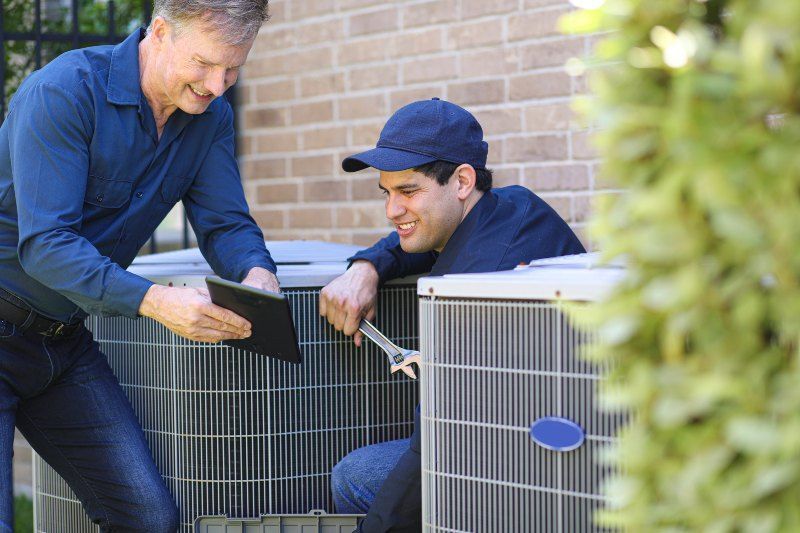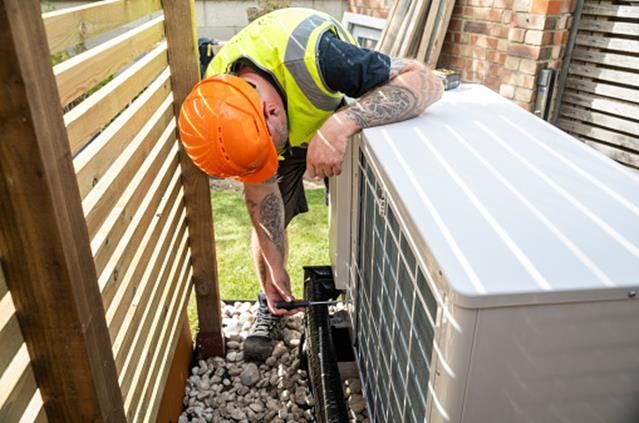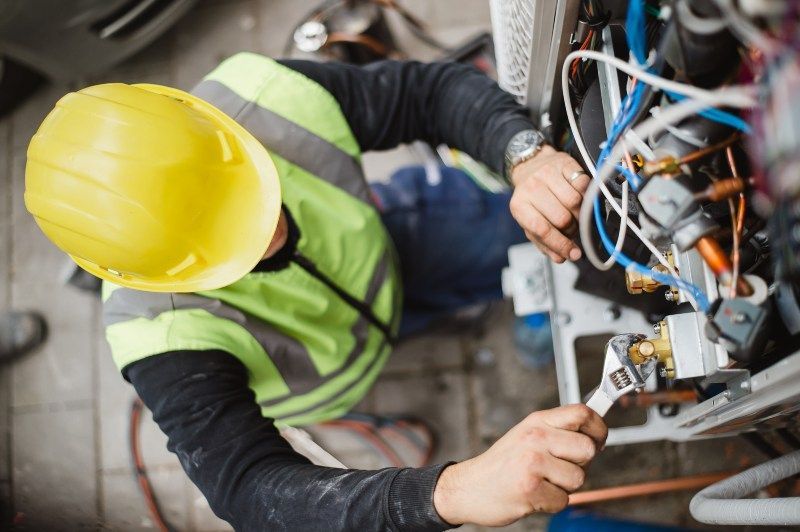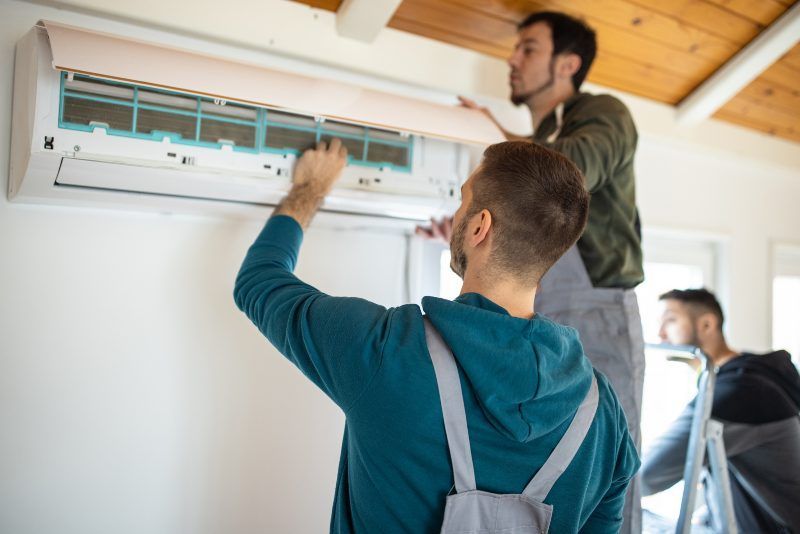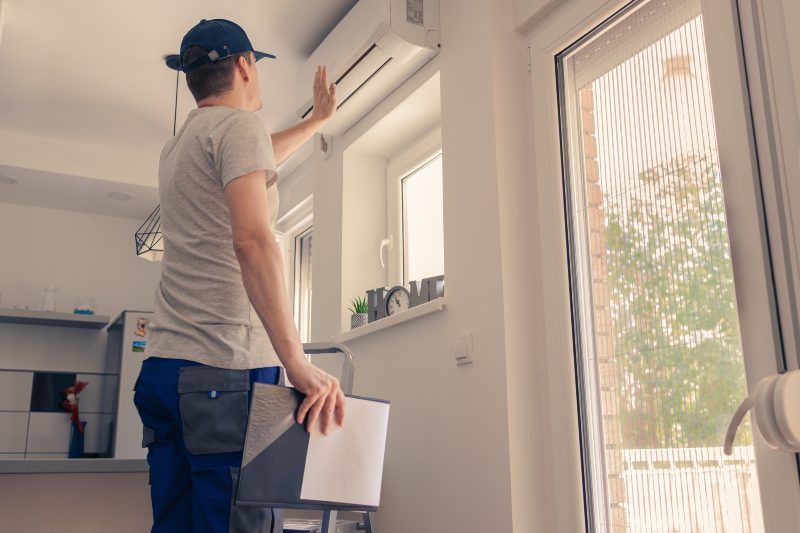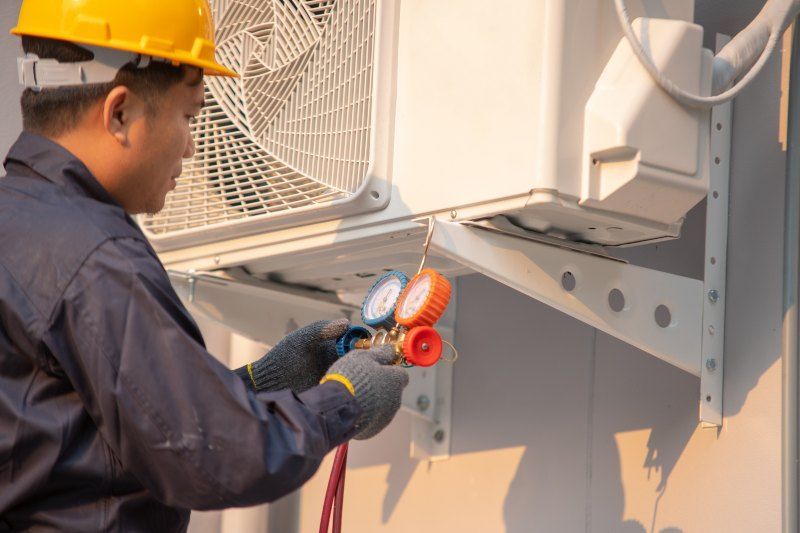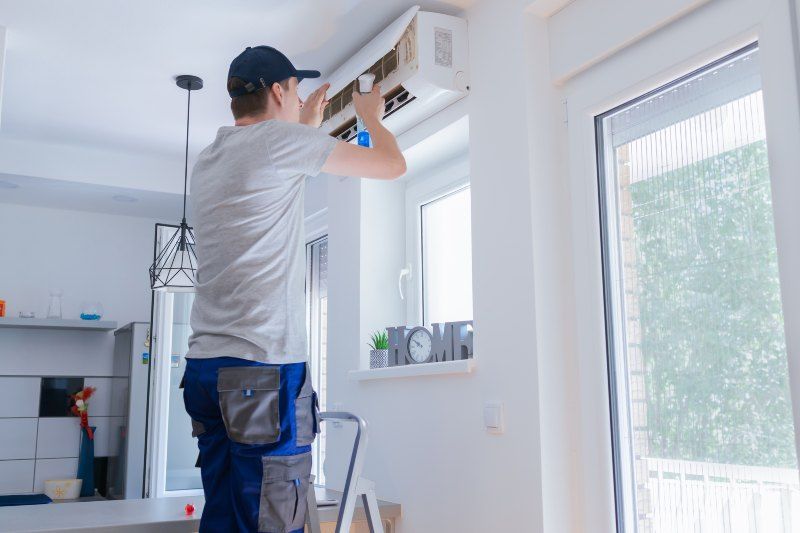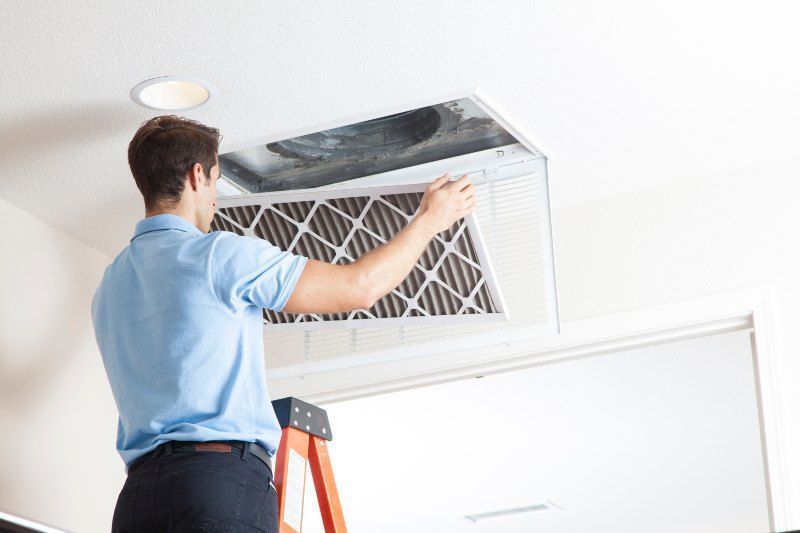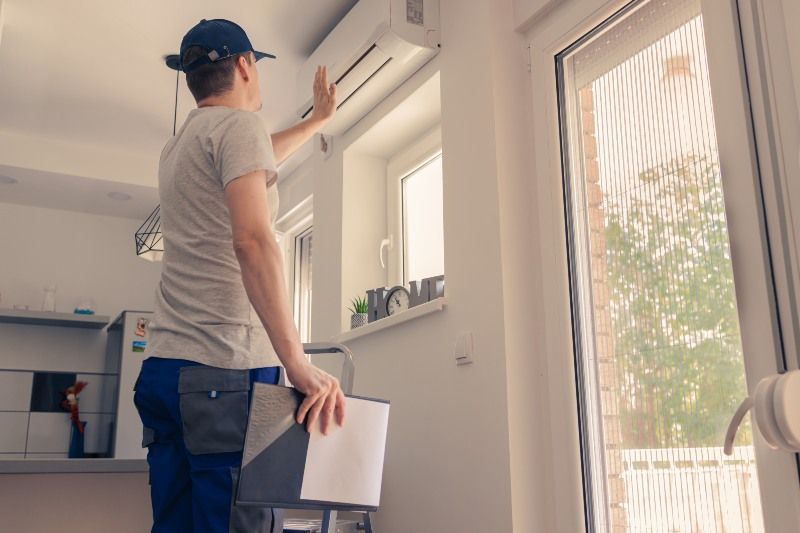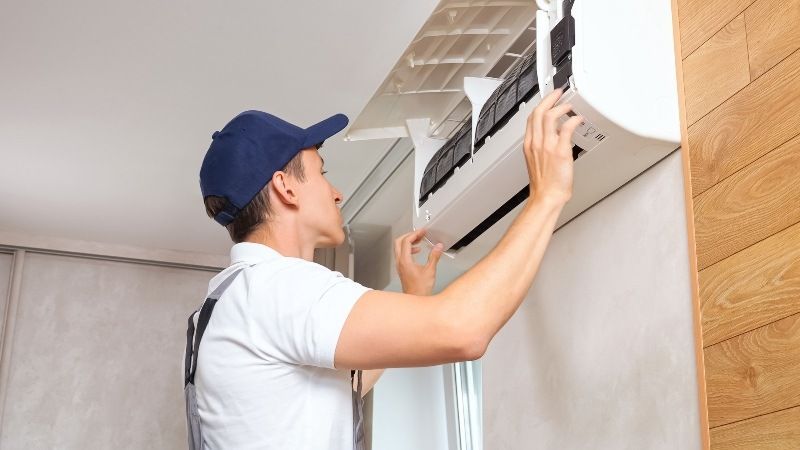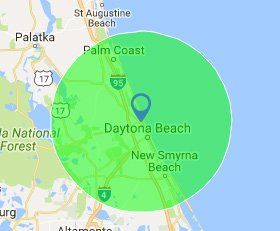What Factors Influence Air Conditioning Installation Costs?
10 Factors Influencing Air Conditioning Installation Costs
Getting a new air conditioner is exciting. You’re about to enjoy better performance, lower cooling bills, and renewed warranty coverage for peace of mind. But before you can reap the benefits of a new A/C unit, you must be willing to invest in it. This begs the question—what is the average cost to install air conditioning, and what factors affect the bottom line? Here are 10 things to be aware of as you seek quotes from different air conditioning installation contractors.
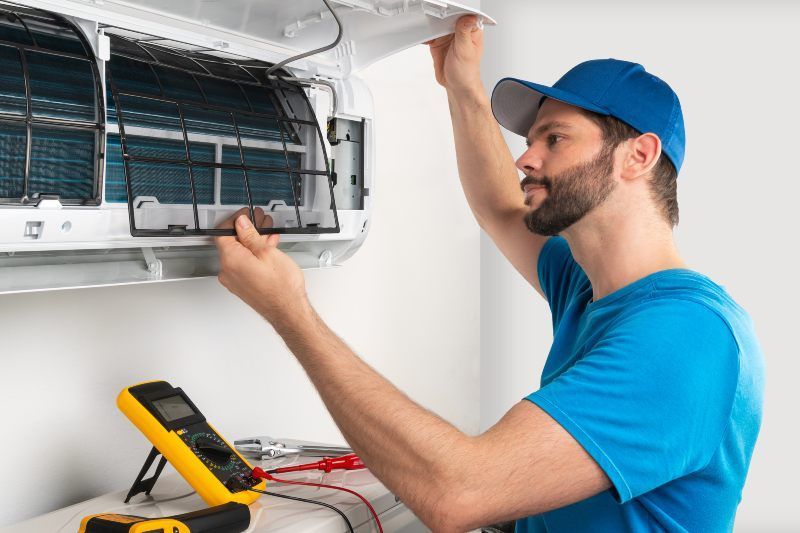
1. Type of Cooling System
Not all air conditioners are created equal. Central A/C units and ductless mini-splits are common options with very different installation costs. Central air requires ductwork, which increases costs if your home doesn’t already have this feature or requires new ducts. As the name suggests, ductless systems don’t require air ducts, so they often have lower installation costs.
2. Home Size & Cooling Capacity
The size of your home directly influences installation costs. After all, larger homes require extensive ductwork and more powerful systems. In general, larger air conditioners cost more than smaller ones of the same efficiency. Cooling capacity is measured in BTUs (British thermal units). You might also see central A/Cs sized by the ton, with one ton equaling 12,000 BTUs. Proper sizing, as determined by a professional, ensures optimal performance and efficiency.
3. Existing Ductwork
If your home already has ductwork, you can forego this significant expense. However, if the ducts are damaged or improperly sized, your air conditioning installer may recommend repairing or replacing them, which adds to the overall cost. For homes without existing ducts, installing new ductwork is a considerable part of the installation—unless you opt for ductless air conditioning.
4. Efficiency Rating
All air conditioners receive a seasonal energy efficiency ratio or SEER rating. Higher ratings mean better energy efficiency and lower utility bills. However, units with higher SEER ratings employ more advanced technology, so they typically come with higher price tags. In Florida’s hot climate, investing in a high-efficiency system is cost-effective in the long run, thanks to years of consistent energy savings.
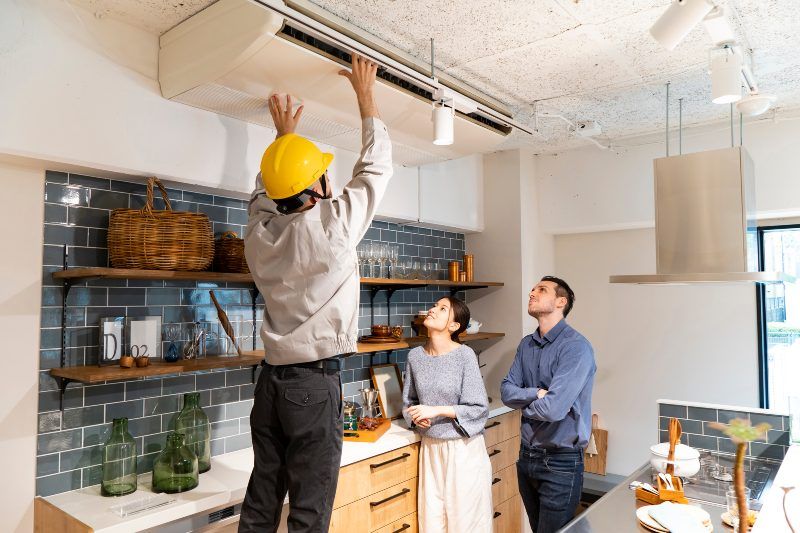
5. Air Quality Add-ons
Many homeowners choose to couple their new air conditioner with indoor air quality solutions. Options like ventilation systems, air purifiers, and whole-house dehumidifiers provide health and comfort benefits. Just be aware that they add to the overall expense.
6. Zoning
A zoning system allows you to control the temperature in different areas of your home independently. This is particularly beneficial for multi-story homes or households with varied cooling needs. Installing a zoning system, complete with multiple thermostats and ductwork dampers, involves additional time and labor. The overall installation cost is higher, but the improved comfort and energy savings are often worth it.
7. Labor Charges
Labor costs depend on the installation complexity and the rates charged by the air conditioning installation contractor. For instance, a simple ductless mini-split installation with only one indoor wall-mounted unit is bound to cost less than a complex installation involving multiple indoor units in hard-to-reach places. Experienced, reputable contractors might charge more for labor, but their expertise ensures a smoother installation and fewer issues down the line.
8. Permits & Code Compliance
Local building codes often require permits for A/C installation, and the cost of these permits varies widely by location. You may also be required to obtain additional inspections and infrastructure modifications to meet regulatory requirements. Working with a knowledgeable air conditioning installation contractor ensures all work is up to code.
9. Specials & Discounts
Many HVAC companies offer specials and discounts to reduce installation costs. For example, seasonal promotions and service coupons provide substantial savings. In addition, 0% financing with credit approval spreads the cost out over time, making it more manageable.
10. Rebates & Tax Credits
Many local utility companies offer rebates for purchasing high-efficiency air conditioners, incentivizing homeowners to choose energy-efficient models. In addition to rebates, the federal government provides tax credits for qualified HVAC systems installed between 2023 and 2032. You may be able to claim 30% of the project if you install a central air conditioner, ducted heat pump, or ductless mini-split. Eligibility criteria and credit amounts vary, so consult your air conditioning installer for more information.
Why Choose Best Value A/C & Heating LLC?
Choosing the right air conditioning installation service is just as important as selecting the right system. Best Value A/C & Heating LLC has you covered with over 20 years of experience as a family-owned, veteran-operated business. We pride ourselves on our personable approach and high-quality work. Our focus on customer education, not high-pressure sales tactics, ensures you end up with the best system for you. Contact us today for an A/C installation estimate in Volusia or Flagler County, FL.
